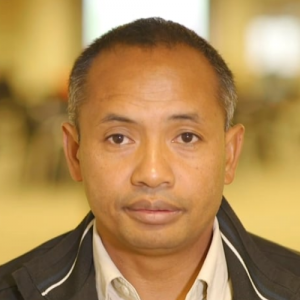Stories from the field
How do you increase municipalities’ legitimacy and effectiveness?
Municipalities are key actors in charge of public service delivery and local economic development in Madagascar. While they retain mandates and rights for resources mobilization they are left disempowered. Why?
Because they not only lack sufficient and predictable funding, but they also are subject to inefficient central procedures regarding, for example, procurement and planning. So, despite the investment block grants used by municipalities through the ‘local decentralization fund’, the sphere of their discretionary decision-making remains very limited.
Adding to this challenge, there is also an unclear institutional landscape with overlapping mandates of decentralized entities combined with a lack of reciprocal engagement between decentralization and sectoral policies, which does not help municipalities to fulfill their public service mission.
Keeping these challenges in mind, one might wonder: how then, can municipalities be perceived as effective and legitimate actors in the eyes of local communities? How can they truly serve and be accountable to the local population?
Part of the answer can be found in the fact that some statutory rights of municipalities do give them real powers which they can exercise without funding. This gives the municipalities some space to exercise discretion and achieve results.
In Madagascar, the institutionalized local concertation structure (SLC – 2015 Decree) at municipal level gives all local actors (elected councils, deconcentrated administrations and services, chiefs, CBOs/NGOs, management committees, administrative and private bodies) the opportunity to engage meaningfully in that space. This enables them to help unlock the municipalities’ potential as catalysts for local development and to facilitate a much-needed culture of citizenship.
Although the SLC is not a decision-making body (that power belongs to elected councilors), it is expected to provide actionable recommendations and advice to the municipal decision-making bodies in the definition, orientation, implementation and monitoring of their policies. The SLC also has the potential to allow citizens to legitimately delegate representatives to its meetings and hold them accountable for their actions.
The key question then, is how to ensure the SLC is truly an effective laboratory where participation leads to improved accountability, governance, and effective local service delivery? The Citizen Involvement in Municipal Service Improvement (CIMSI) project, supported by a GPSA grant, is aiming precisely to help address this question.
Currently, there are about 200 municipalities out of more than 1600 (that’s less than 12%) that have an SLC that meets regularly. CIMSI is supporting an additional 46 municipalities to set up a functional and effective SLC. CIMSI also supports these municipalities’ efforts to strengthen their accountability in a specific sector, whether it is health, education or land services.
Most of the 10 ‘pilot’ SLCs that have been supported so far have selected health as their sector of engagement, probably because of the inadequacy of community-based health services, which tend to lack transparency and good governance of resources.
The first year of this project’s implementation demonstrates that SLCs have been promoted successfully as a forum for dialogue. Municipalities have reported on their budgets at SLC level, increasing transparency in the management of public finances. The project also identified concrete problems related to local service delivery that were solved through SLCs deliberations. In one of the supported municipalities, for example, following a citizen evaluation, more transparency in the health sector was observed through the public display of drug prices. In another commune, the SLC's core group was mobilized to raise awareness about the need to secure the farmers’ land. This resulted in a greater number of land certificates – previously, only one certificate per year was issued by the municipal land office.
Thus, citizen evaluations of public services allowed SLC members to get a real sense of the community’s perception of the quality and access to selected public services, which allowed for improved identification of citizen’s needs. And mayors who were previously either suspicious or hesitant about the SLC became more convinced about the usefulness of concertation ('mifampièra').
To cap it all, the SLC provided a forum to support the participatory elaboration of municipal plans and budgets – taking into consideration the priorities identified for the formulation of the 2019 Primitive Budget.
These initial results show that the SLC can work as a laboratory where participation leads to improved accountability and governance. The SLC has shown the potential to open the space to the expression of various voices, increasing transparency, representation, inclusion and decision making on local policies. SLCs can generate ownership of local political actions and improve public sector performance and provision of public services and local economic development. This, in turn, could help mobilize additional resources at the municipal level and energize civic engagement for co-production of services.
Because of its role in catalyzing citizen participation in local governance, the CIMSI project can also positively influence local perception of the legitimacy of local government institutions especially as knowledge increases and trust in the public sector grows.
Notwithstanding its potential, CIMSI also faces several challenges, particularly its ability to link local development to central-level decision makers, which is essential to an decentralization model and process. This remains an open question and the answers may surface in the coming years of implementation.
Author
Rowlands Kaotcha
Mr. Rowlands Kaotcha is a Global Vice President and Director for Africa and Mexico, after having served as the Southern Africa Regional Director for The Hunger Project, Country Director in Malawi since 2004, and as dual Country Director of Malawi and Mozambique since October 2017. Recently, Rowlands led The Hunger Project’s expansion into Zambia and also serves as the Southern Africa coordinator for the Movement for Community-led Development.
related content
Capitalizing on the ability of civil society organizations to collect information from users of public services about the state of public service delivery, and effectively channeling this information to decision-makers in government and parliament can contribute to evidence-based policymaking, and, ultimately, to improved public services.

